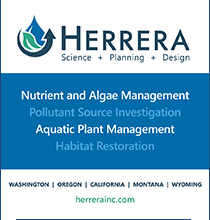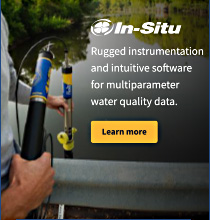When most people think of the western United States, they think of wind-swept mountains, dense conifer forests and open arid deserts. A closer examination of the map shows that our communities are more often associated with the lakes and rivers that flow through the region. We live near the water and it is important to all of us. Agriculture, power generation, recreation and water-based tourism drive many of our local economies. Water defines many of the communities in our region and this precious resource is at risk.

- Zebra Mussels (size = about 3/4 inch each)
Invasive aquatic species directly threaten the ecosystems, economies and recreational opportunities our waters provide. Invasive mussel and plant species are not native to North America and can cause significant harm to the waters we love. Invasive plants like Eurasian watermilfoil and hydrilla grow quickly and choke waterways, degrade water quality, obstruct water flow and limit boat access and recreation.
Species like zebra and quagga mussels are even more damaging. Mussels are the only fresh water clam-like organisms in North America that stick to things and that leads to a number of problems. Zebra and quagga mussels have a particular affinity for water pipes and quickly plug them up with their shells. Dense infestations obstruct water flow for irrigation and significantly increase maintenance costs for dams, hydroelectric power plants, and drinking water treatment facilities. Mussels encrust boat hulls, plug up motors and pumps, and foul docks, rocks and shorelines. The mussels out-compete native species, degrade water quality, harm fisheries and kill or displace endangered species. Beaches are littered with sharp and smelly shells; recreation and tourism suffer. Once mussels are introduced to an area, they are virtually impossible to eradicate. Prevention is our only real chance to keep them out of this region.
Zebra and quagga mussels have not yet been found anywhere in the Columbia Basin, so we have a unique opportunity to be proactive and keep them out. The main way these species move around is by adhering to hulls or hitchhiking in live well or bilge water. The mussels can live up to 30 days out of the water, so can survive long distance travel. This year alone, watercraft inspection programs have intercepted more than 60 vessels entering our region with zebra or quagga mussels. By educating the boating public and making sure every boat is “Clean, Drained, and Dry” we can protect our waters from damaging invasive aquatic species.
Here’s how you can help:
- Always clean, drain, and dry your boat and gear.
- Know what invasive aquatic species look like and keep an eye out for them.
- Educate others. If friends or neighbors spend the winter with their boats in Lake Havasu or Lake Mead, they could bring mussels home with them.
- Get involved with your local watershed or lake association to better protect the waterbodies in your area.
For more information on zebra and quagga mussels, go to www.100thmeridian.org. For aquatic plant information, visit: www.ecy.wa.gov/programs/wq/links/plants.html










